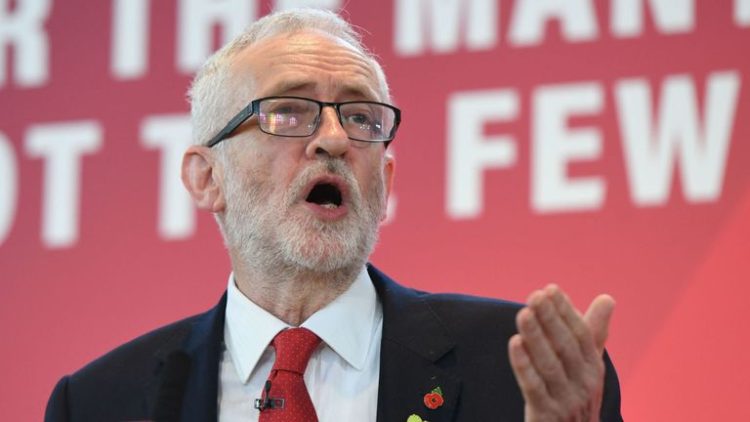By Tony O’Riley-
Jeremy Corbyn lost the 2019 elections for many reasons, most notably the general perception he would poorly represent the British people.
Yesterday, London Mayor, Sadiq Khan said he wanted an assessment of why Labour lost the election, so a detailed assessment has been produced here.
The Labour leader was generally supported by minority voters who saw Corbyn as representing the working and disadvantaged everyday British individual. Corbyn needed a much greater following than those he was pandering to through his election manifesto.
He was already perceived to be anti British, despite his unmistakably English roots and ancestry. Labelled the enemy of the people, Corbyn’s openly expressed sympathy for Palestinians in the war against Israel on top of past affiliation with the IRA led to him being labelled by the press as the ‘enemy of the people’.
Apart from the extreme level of allegations of anti semetism in the part which chased away Jew voters from his party, Corbyn has many years ago vowed not to pledge allegiance to the Queen. His open dislike of the Monarchy meant royalists would not select him as their leader, a group whose disapproval is also strengthened by the army and all those who support the British army
Revelation that when Mr Benn presented a Bill on July 1, 1996 to abolish the Monarchy , the first six signatories included Corbyn was a knockout blow to Corbyn’s political dreams because many voters considered him to have very limited elements of patriotism even if there was any logic to his ambitions.
There has been much debate about the justice in the royals benefiting from tax payers money in the broad form they do despite their inherited wealth, but a drive to abolish the Monarchy entirely is not one that would have amused the Queen or pleased voters. Other Labour MPs who supported Corbyn’s ideology included: Mr Benn, Mr Corbyn, John Austin-Walker, Tony Banks, Roland Boyes and Bill Etherington.
ABOLITION OF MONARCHY
One of the many reasons Corbyn also lost the elections was his unpatriotic drive to see the Monarchy abolished. Corbyn may not have been alone in this thinking, but he was perceived to have too little things that would show him to be a proud British born prime minister. wanted a complete abolition of the monarchy, ending the constitutional status of the Crown, the Privy Council and the House of Lords. The Monarchy would have been substituted for the election of a president as Head of State, undoing thousands of years of history. He then vowed to add to the British curriculum a history of the injustice of the British Empire.
This meant a fundamental change in the way history is understood in schools, intended to teach school children that their ancestors were cruelly unjust during the colonial empire; details they would probably never learn in detail anywhere outside of schools, but whose history they will all become aware of in later life. It would not have balanced this history with other historical facts including that every country at some point took others as slaves.
When added to his sympathetic leaning towards the Palestinians, his whole profile failed the test. This is why he performed much worse than he did during the elections against Theresa May in 2018 when he was still new to the public and more impressive than people had thought before he became opposition leader. Against Boris Johnson, who focused on ”getting Brexit done”, he was no match, and suffered a political beating.
BRITISH ARMY
His stance on the British army also lacked patriotism, even with his utopian projection of a peaceful world. Corbyn, who is known to have campaigned against nuclear weapons in the past expressed a desire to see every country abandon its arms on the 67th anniversary of the nuclear bomb drops on Hiroshima and Nagasaki, killing tens of thousands. His remarks were taken to mean that he does not support the British army, but Corbyn never addressed this misconception during his last election campaign.
Corbyn has conducted a mini-reshuffle of his top team, withTracy Brabin replacing former deputy party leader Tom Watson as shadow culture secretary and Rachael Maskell takes over from Laura Pidcock, who lost her seat at the election, as shadow employment rights secretary.
NEGATIVE PRESS COVERAGE
The negative press coverage against Corbyn during the elections may have contributed to his wide defeat, but nearly as much as the facts being revealed in those press reports. Afterall, the same press were there when Corbyn pushed Theresa May so close to a hung parliament in 2017. The main cause of his comprehensive loss has to be the many faces he showed of himself in the build up to the elections, and the general fact that he is just not trusted to lead the United Kingdom as leader.




